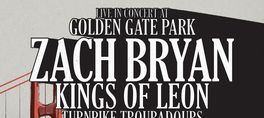Wed October 16, 2013
Cosmology After Planck
SEE EVENT DETAILS
at UC Berkeley, 315 Wheeler Hall
(see times)
The Planck Telescope has made an accurate full-‐sky measurement of the cosmic microwave background (CMB) temperature, the leftover heat from the Big Bang. These measurements probe both the physics of the very early universe and the basic
properties of the universe today. The Planck measurements confirm the earlier results from the WMAP telescope and rigorously test our standard cosmological model. They also provide an accurate determination of basic cosmological parameters, e.g., the shape of the universe, its age, and its composition. When combined with other astronomical measurements, the measurements constrain the properties of the dark energy and the nature of dark matter. The observations also directly probe the physics of first moments of the Big Bang: the current data are consistent with the idea that the early universe underwent a period of rapid expansion called inflation.
Many key cosmological questions remain unanswered: What happened during the first moments of the Big Bang? What is the dark energy? What were the properties of the first stars? In this free public lecture, Professor David Spergel, Princeton University, will discuss the role of ongoing and future CMB observations and describe how the combination of large-scale structure, supernova, and CMB data can be used to address these key cosmological questions.
show less
properties of the universe today. The Planck measurements confirm the earlier results from the WMAP telescope and rigorously test our standard cosmological model. They also provide an accurate determination of basic cosmological parameters, e.g., the shape of the universe, its age, and its composition. When combined with other astronomical measurements, the measurements constrain the properties of the dark energy and the nature of dark matter. The observations also directly probe the physics of first moments of the Big Bang: the current data are consistent with the idea that the early universe underwent a period of rapid expansion called inflation.
Many key cosmological questions remain unanswered: What happened during the first moments of the Big Bang? What is the dark energy? What were the properties of the first stars? In this free public lecture, Professor David Spergel, Princeton University, will discuss the role of ongoing and future CMB observations and describe how the combination of large-scale structure, supernova, and CMB data can be used to address these key cosmological questions.
The Planck Telescope has made an accurate full-‐sky measurement of the cosmic microwave background (CMB) temperature, the leftover heat from the Big Bang. These measurements probe both the physics of the very early universe and the basic
properties of the universe today. The Planck measurements confirm the earlier results from the WMAP telescope and rigorously test our standard cosmological model. They also provide an accurate determination of basic cosmological parameters, e.g., the shape of the universe, its age, and its composition. When combined with other astronomical measurements, the measurements constrain the properties of the dark energy and the nature of dark matter. The observations also directly probe the physics of first moments of the Big Bang: the current data are consistent with the idea that the early universe underwent a period of rapid expansion called inflation.
Many key cosmological questions remain unanswered: What happened during the first moments of the Big Bang? What is the dark energy? What were the properties of the first stars? In this free public lecture, Professor David Spergel, Princeton University, will discuss the role of ongoing and future CMB observations and describe how the combination of large-scale structure, supernova, and CMB data can be used to address these key cosmological questions.
read more
properties of the universe today. The Planck measurements confirm the earlier results from the WMAP telescope and rigorously test our standard cosmological model. They also provide an accurate determination of basic cosmological parameters, e.g., the shape of the universe, its age, and its composition. When combined with other astronomical measurements, the measurements constrain the properties of the dark energy and the nature of dark matter. The observations also directly probe the physics of first moments of the Big Bang: the current data are consistent with the idea that the early universe underwent a period of rapid expansion called inflation.
Many key cosmological questions remain unanswered: What happened during the first moments of the Big Bang? What is the dark energy? What were the properties of the first stars? In this free public lecture, Professor David Spergel, Princeton University, will discuss the role of ongoing and future CMB observations and describe how the combination of large-scale structure, supernova, and CMB data can be used to address these key cosmological questions.
show less
Date/Times:
UC Berkeley, 315 Wheeler Hall
101 Sproul Hall, Berkeley, CA 94720
The Best Events
Every Week in Your Inbox
From Our Sponsors
UPCOMING EVENTS
Great suggestion! We'll be in touch.
Event reviewed successfully.








